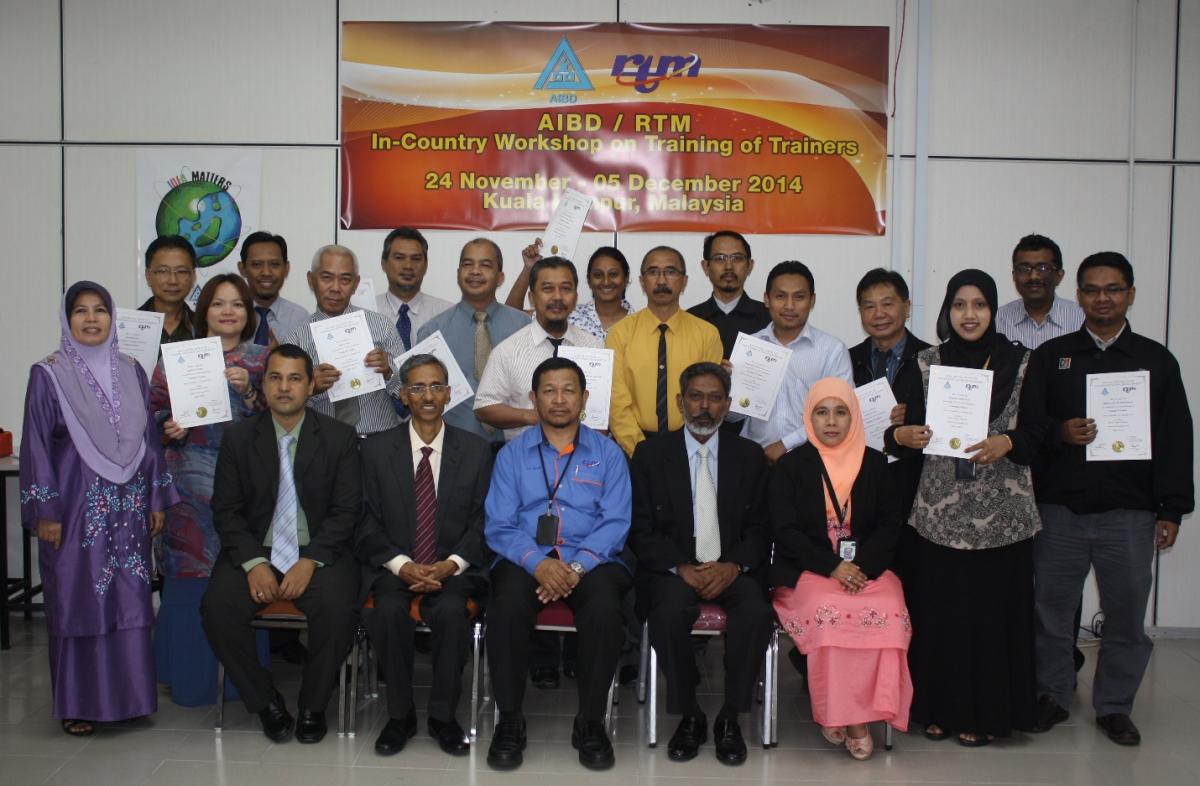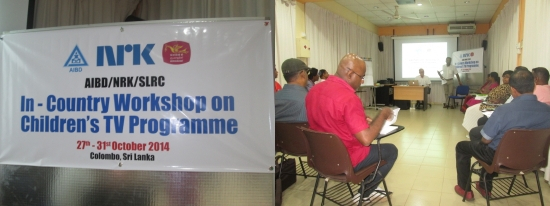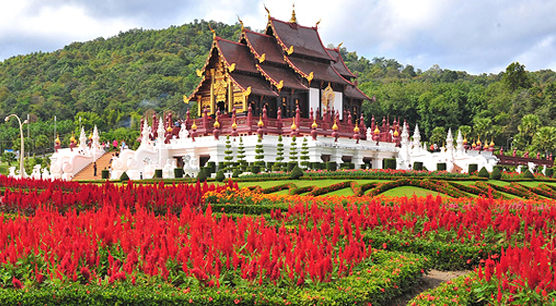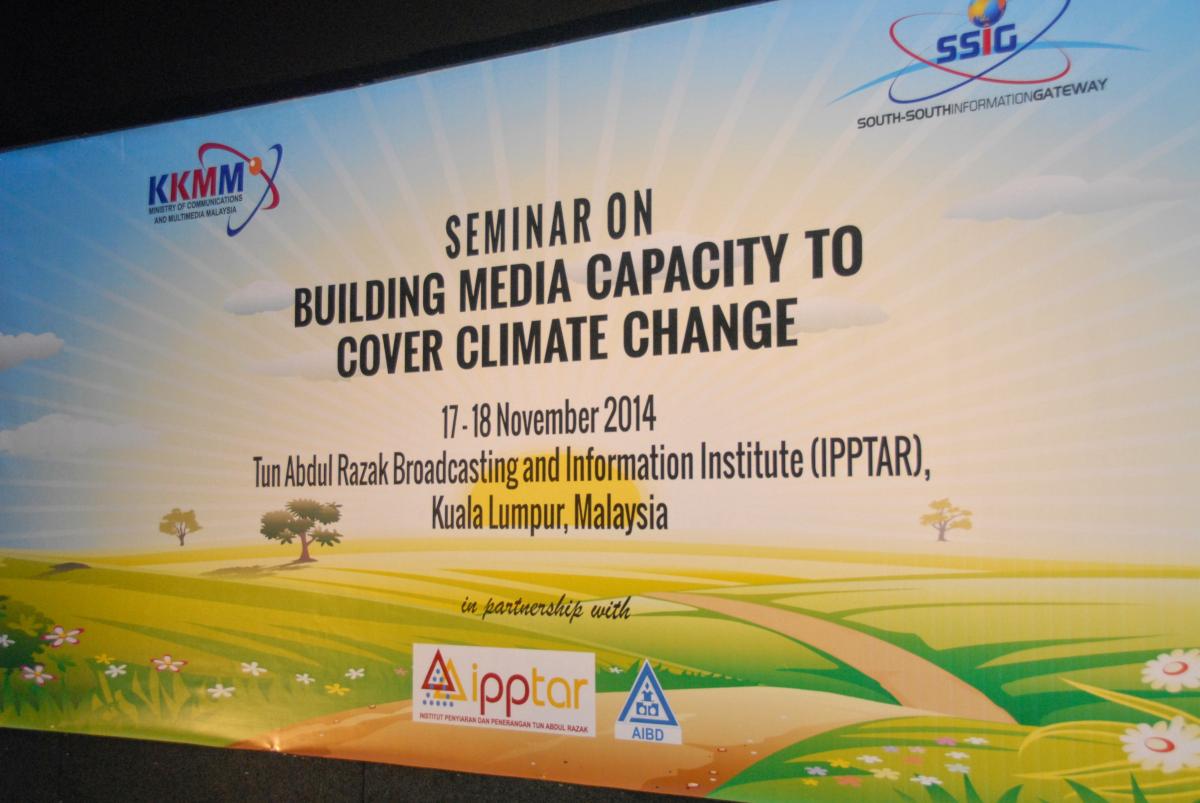Technological developments are impacting the media organisations in many ways. New delivery platforms, new media products & services and enhanced audience expectations are posing challenges for the broadcast organisations. Well-equipped and trained human resources in the broadcasting field are valuable assets for the organisations to meet these challenges.
Technological developments are impacting the media organisations in many ways. New delivery platforms, new media products & services and enhanced audience expectations are posing challenges for the broadcast organisations. Well-equipped and trained human resources in the broadcasting field are valuable assets for the organisations to meet these challenges.

RTM, the public service broadcaster of Malaysia had identified the need for training and capacity building to meet the new multi-skilling and multi-tasking requirements of its engineering staff. Trained trainers were required to manage the consequential training needs through the in-house training of its staff. Accordingly, the AIBD / RTM in-country workshop on Training of Trainers was organised from 24th November to 5th December 2014 at AIBD, Kuala Lumpur to meet this training need.

Fourteen participants from different sections of engineering division of RTM attended the workshop. These covered engineering staff from the areas of TV and Radio Operations, TV production, Multi-channel broadcast, News automation as well as TV transmission and Satellite network centre. It was observed that though the participants had good knowledge of their area of expertise, they did not have much idea about how to effectively impart their subject matter knowledge and skills to other staff. Lack of requisite skills for training warranted specific inputs to be given to develop them as effective trainers on the job.


AIBD TOT programme for trainer / instruction development caters very well to these needs. The standardised structure and curriculum of TOT which deals with planning, conduct, management and evaluation of trainings for core competency development for organisational staff was suitably oriented to meet the specific requirement of the RTM engineering staff . The ten days workshop covered Aims of training, Role of a trainer, Job analysis and Training Needs Analysis, Formulation of Training objectives, Instructional design and overview of Training methods/ techniques (OJT etc.) as well as Session preparation & presentation and Evaluation of training to ascertain its effectiveness.


The salient features of the workshop were experiential learning techniques for adult learners through interactive lecture presentations, discussions and group work. The emphasis in the workshop was on the Learning-by-Doing and structured projects involving group as well as individual presentations were included in the workshop. This generated lot of interest / involvement amongst the participants. The micro-teaching session helped the participants to practice as well as demonstrate assimilation of learning in the workshop.

The participants of the workshop were a fairly homogeneous group and took keen interest in all the activities. The end of the workshop evaluation showed that participants found the inputs received by them in the workshop, very useful and had gained very much in terms of Knowledge, Skills and Attitudes for being effective trainers. They were very satisfied with the conduct of the workshop and felt confident and enthusiastic to take up their responsibilities in organising training in respective areas at RTM.

The consultant for the workshop was Mr. Y.K. Sharma, Advisor (Training & HRD), Broadcast Engineering Consultants (India) Limited, India. Mr. Sharma observed that the knowledge and skills gained by the participants will go a long way in developing them as effective trainers and help RTM build a core of trained trainers to train their staff. It will definitely help RTM’s human resources and capacity building endeavor for meeting present and future requirements.

AIBD/RTM In-country Workshop on Training of Trainers
Technological developments are impacting the media organisations in many ways. New delivery platforms, new media products & services and enhanced audience expectations are posing challenges for the broadcast organisations. Well-equipped and trained human resources in the broadcasting field are valuable assets for the organisations to meet these challenges.
AIBD & FES: 3 fruitful decades
After more than 35 years of productive association, the collaboration between AIBD and Friedrich-Ebert-Stiftung (FES) is turning a new leaf. Even as AIBD continues to be associated with FES, the German organisation’s office in Malaysia is being closed down by year-end.
IPPTAR/AIBD Regional Workshop on Media Literacy
The Regional Workshop on Media Literacy was jointly organised by the Tun Abdul Razak Broadcasting and Information Institute (IPPTAR) and AIBD from 1-3 December in Kuala Lumpur, Malaysia. The workshop brought 14 participants, including producers, editors and managers involved in content production, from broadcast organisations in Cambodia, Indonesia, Laos, Malaysia, Thailand and Vietnam.
AIBD/NRK/SLRC In-Country Workshop on Children’s TV Programme
From 27 to 31 October 2014, Sri Lanka Rupavahini Corporation (SLRC) hosted an in-country workshop on Children's TV Programme in Colombo, Sri Lanka.
AIBD/TVRI In-Country Consultation on Social and Emerging Media
AIBD/TVRI in-country consultation on Social and Emerging Media for Broadcast Management was held from 25 - 27 November 2014 in Jakarta, Indonesia.
Thailand to Host GC 2015
AIBD Deputy Director Mr. Marcel Gomez paid an official visit to Chiang Mai, Thailand from 25 to 28 November 2014 for a site inspection and successful preparations for the 41st Annual Gathering / 14th AIBD General Conference & Associated Meetings, to be hosted by the Government Public Relations Department (PRD), Thailand from 18 to 20 August 2015.
Ms. Praphaisri Ketsawa, Director International Cooperation Division, led the PRD team comprising of Ms. Sirinapha Pansang and Mr. Worapon Mathurosmatanee.
AIBD/Prasar Bharati/NABM Sub-Regional Workshop on TV Post Production and Graphics
The Sub-Regional Workshop on TV Post Production and Graphics organised by AIBD in collaboration with Prasar Bharati and National Academy for Broadcasting and Multimedia (NABM) was held in New Delhi, India from 17 - 21 December 2014.
IPPTAR/KKMM/AIBD Successful Seminar on Building Media Capacity to Cover Climate Change
The Ministry of Communication and Multimedia, Malaysia (KKMM), in collaboration with the Tun Abdul Razak Broadcasting and Information Institute (IPPTAR) and the Asia-Pacific Institute for Broadcasting Development (AIBD), organised the Seminar on Building Media Capacity to Cover Climate Change in Kuala Lumpur from 17-18 November 2014. Climate change is a global phenomenon with far-reaching ramifications, requiring action from a variety of stakeholders, such as policymakers, civil society and the media.
AIBD/IPDC/UNESCO Regional Workshop on Capacity Building for Safety of Journalists In Central Asian Republics
The Regional Workshop on Capacity Building for Safety of Journalists In Central Asian Republics organised by AIBD and the International Programme for Development of Communication (IPDC) and the UNESCO Almaty Cluster Office for Kazakhstan, Kyrgyzstan, Tajikistan and Uzbekistan, was held in Almaty, Kazakhstan on 13-15 October 2014.
SAPPRFT TC Joins AIBD Family
AIBD is proud to announce that The Research and Training Institute of The State Administration of Press, Publication, Radio, Film and Television (SAPPRFT) of China has become an AIBD Affiliate Member effective September 2014.









